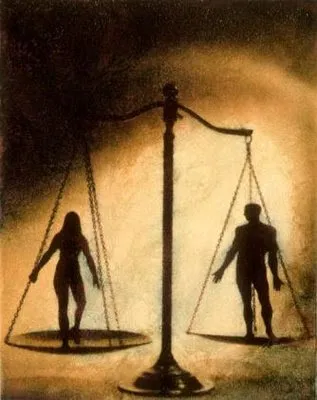Women are centre-stage in today’s readings. The first woman, Eve, heals the loneliness of the first man, Adam, corresponding to him in a way that no other creature could, and the two are united as equals, in one flesh. While the Jews knew how women bring joy and fulfilment stability into the life of men, they regarded pagan women as responsible for apostasy in Israel. Then in the gospel a pagan woman surprises Jesus with her faith and humble perseverance.
In today’s gospel we see Jesus move out of the territory ruled by Herod and into Tyre, a mixed district consisting of both Greeks and Jews. In Mark’s Gospel, Jesus is a man of his time and place. He saw the descendants of Abraham as chosen by God above all others.
The Syro-Phoenician woman is unique among all the figures in the four Gospels. She is the only one who wins an argument with Jesus. At first he refuses her request to drive the demon out of her daughter. He tells her that he has come first and foremost to the children of Abraham. The woman grovels to the level of comparing herself to a dog that might eat the scraps from the table of the children of Abraham. She falls at the feet of the Lord. Jesus is truly moved by this. He grants the woman’s request.
The woman who begs for healing from the Lord serves as a good model for us as we move into Lent and begin our journey to Easter. We might do well to model ourselves after the persistence and faith of the woman who wins her argument with Jesus.
Today more than in the past we ponder on the rightful relationship between the sexes, in family, friendship, in the workplace and in social situations. Our differences as men and women help us to complement each other and challenge each other to grow. Genesis suggests that either the woman or the man in isolation would be deficient and incomplete. The union by which they complement one another enables the image of God in both of them to flourish. In this way marriage sets the pattern for all human friendship and community.
Many of the women in the Scriptures can be models for men as well as for women, just as men provide examples for both women and men. What is scattered and fragmented must be reunited in Jesus, for as Paul says: “among you it is no longer Jew or Greek, slave or free, male or female, for all are one in Christ Jesus” (Gal 3:28-29). In a radical way, belonging to Jesus heals all fragmentation arising from sex and gender.
Adam exclaimed, “This is bone of my bones and flesh of my flesh.” If a spouse needs to leave father and mother and cling to the other, each has a divine mandate to put nothing before one’s loyalty to the other. The words of Jesus apply: There is no greater love than this, to lay down one’s life for one’s friends (John 15:13). In times of crisis, spouses may need to remember his other saying: “Whoever tries to preserve their life will lose it; whoever loses it will keep it” (Luke 17:33). Not only do we not put anyone else before our spouse, but we may be called on to sacrifice ourselves for their sake.
Jesus, the example of this woman challenges me. I have been taught to be resourceful, independent, and strong in the face of trials or difficulties, to find solutions, and to fix problems myself. Yet, this woman let all that go and she ran to you. She knew her limits and let you be God in her life. Help me to surrender to that depth. Help me to bring to you all the aspects of my life that I pretend to have under control.
